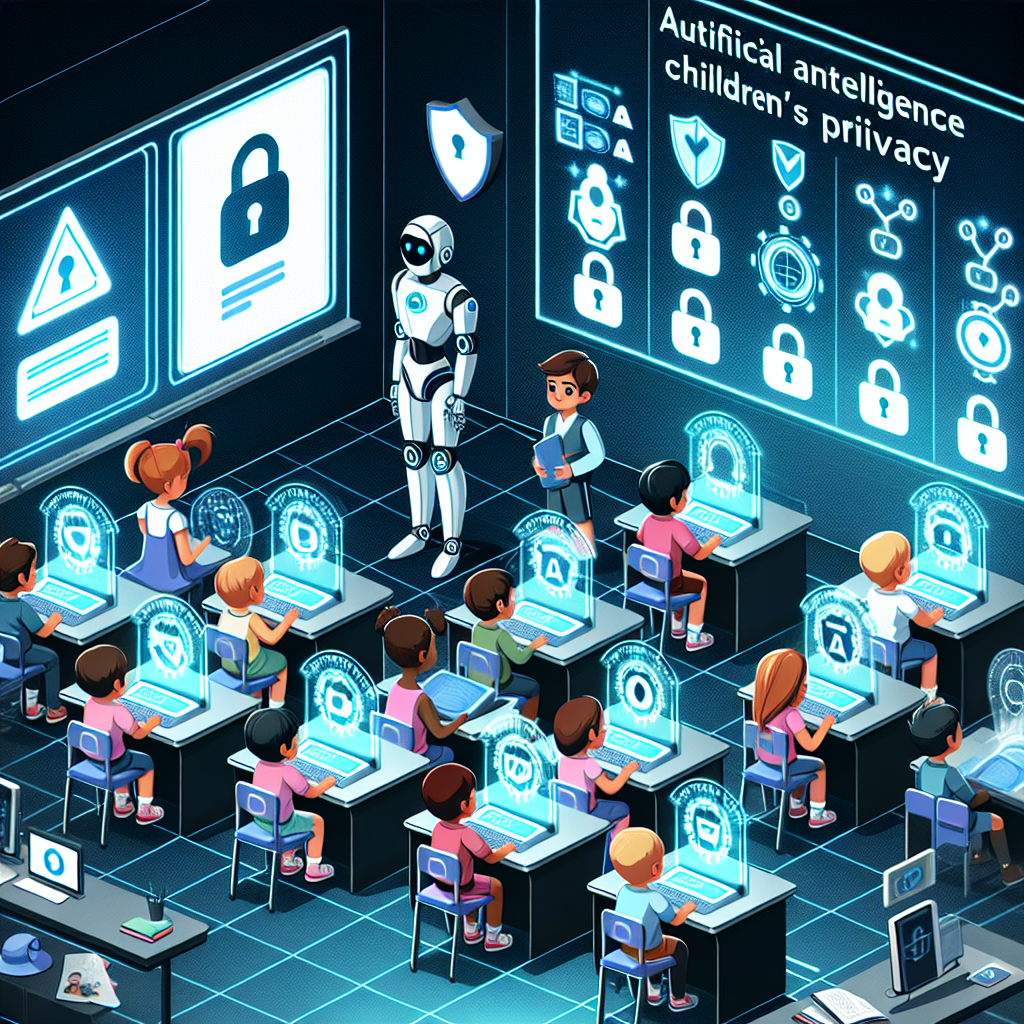Artificial Intelligence (AI) has become an integral part of our daily lives, with its applications ranging from virtual assistants to driverless cars. However, as AI technology continues to advance, concerns about its impact on privacy, particularly the privacy of children, have also increased.
Children are among the most vulnerable members of society when it comes to privacy protection. They are often not fully aware of the implications of sharing personal information online, and may not have the skills to protect themselves from potential risks. This is where AI can play a crucial role in safeguarding children’s privacy.
AI technology can be used to detect and prevent online threats to children, such as cyberbullying, grooming, and inappropriate content. By analyzing vast amounts of data in real-time, AI algorithms can identify patterns of behavior that may indicate a potential risk to a child’s safety. This allows for swift intervention by parents, educators, or law enforcement authorities to protect the child from harm.
Furthermore, AI can also be used to enhance parental controls and monitoring tools to help parents better manage their children’s online activities. For example, AI-powered parental control apps can analyze the content of websites and apps visited by a child, and block access to inappropriate material. These tools can also provide parents with insights into their child’s online behavior, allowing them to have more informed conversations about internet safety.
In addition to protecting children from online threats, AI can also help to protect their privacy in other ways. For example, AI can be used to anonymize data collected from children, ensuring that their personal information is not exposed to unauthorized parties. This is particularly important in the context of data-driven services, such as personalized learning platforms, where sensitive information about a child’s academic performance and behavior may be collected.
Despite the potential benefits of AI in protecting children’s privacy, there are also concerns about the ethical implications of using AI in this context. For example, there are concerns about the potential for AI algorithms to inadvertently discriminate against certain groups of children, such as those from marginalized communities. There are also concerns about the lack of transparency and accountability in the use of AI in child protection measures, which could lead to unintended consequences for children’s privacy rights.
To address these concerns, it is important for policymakers, technology companies, and child advocacy groups to work together to develop clear guidelines and standards for the ethical use of AI in protecting children’s privacy. This includes ensuring that AI algorithms are trained on diverse and representative datasets, and that they are regularly audited for bias and fairness.
Furthermore, it is important for parents and educators to be informed about the potential risks and benefits of using AI in child protection measures, so that they can make informed decisions about how to best protect their children’s privacy online. This includes being aware of the limitations of AI technology, and understanding the importance of maintaining open communication with children about their online activities.
In conclusion, AI has the potential to be a powerful tool for protecting children’s privacy online. By leveraging the capabilities of AI technology, we can better detect and prevent online threats to children, and ensure that their personal information is kept safe and secure. However, it is important to address the ethical concerns surrounding the use of AI in child protection measures, and to work towards developing clear guidelines and standards for its use. By doing so, we can harness the power of AI to create a safer and more secure online environment for children.
FAQs:
Q: How can AI be used to protect children’s privacy online?
A: AI can be used to detect and prevent online threats to children, such as cyberbullying, grooming, and inappropriate content. By analyzing vast amounts of data in real-time, AI algorithms can identify patterns of behavior that may indicate a potential risk to a child’s safety.
Q: What are some ethical concerns surrounding the use of AI in child protection measures?
A: Some ethical concerns include the potential for AI algorithms to inadvertently discriminate against certain groups of children, and the lack of transparency and accountability in the use of AI in child protection measures.
Q: How can parents and educators ensure that AI is being used ethically to protect children’s privacy?
A: Parents and educators can stay informed about the potential risks and benefits of using AI in child protection measures, and make informed decisions about how to best protect their children’s privacy online. They can also advocate for clear guidelines and standards for the ethical use of AI in child protection.
Q: What are some best practices for using AI to protect children’s privacy online?
A: Some best practices include ensuring that AI algorithms are trained on diverse and representative datasets, regularly auditing them for bias and fairness, and maintaining open communication with children about their online activities.

